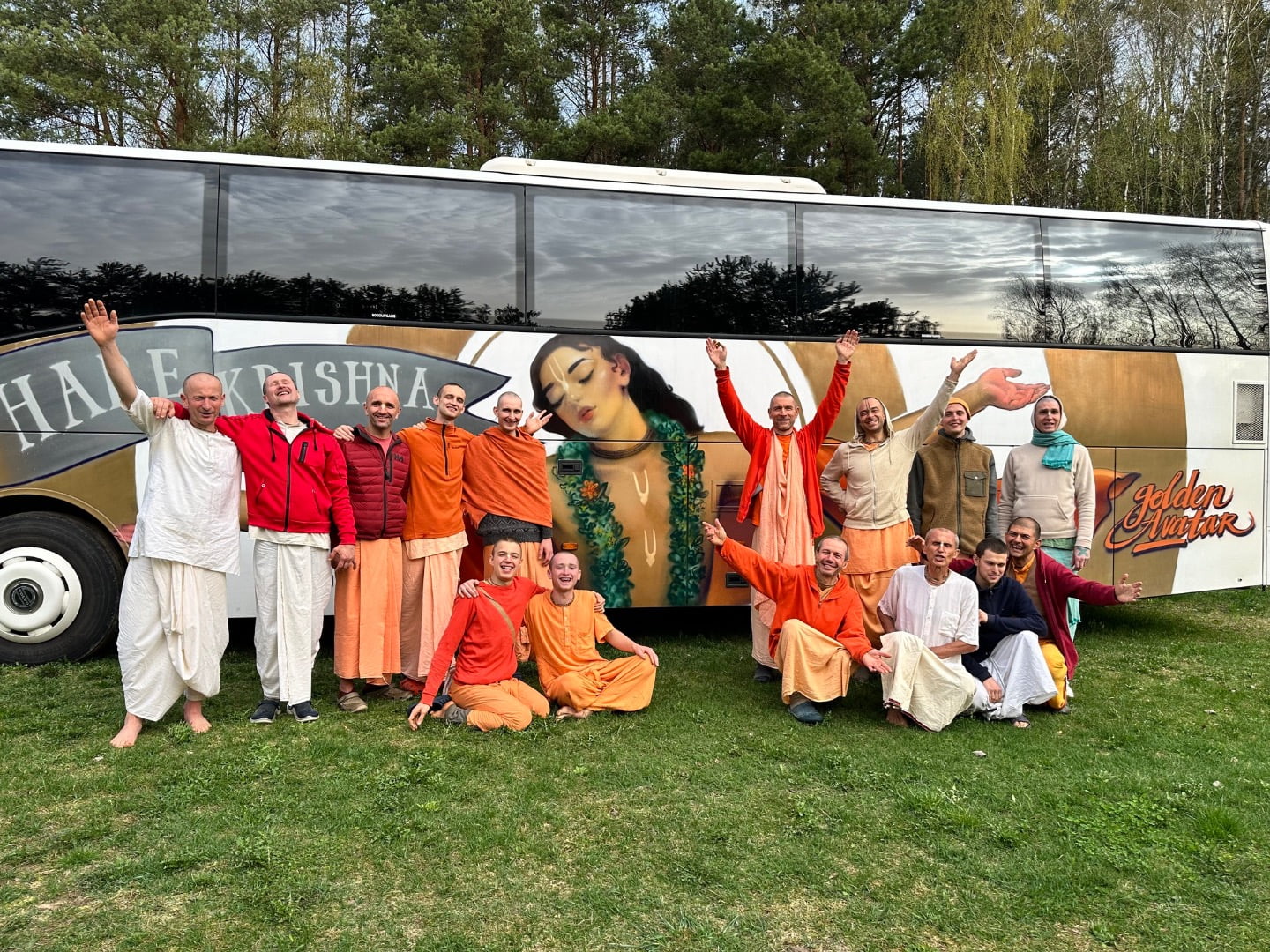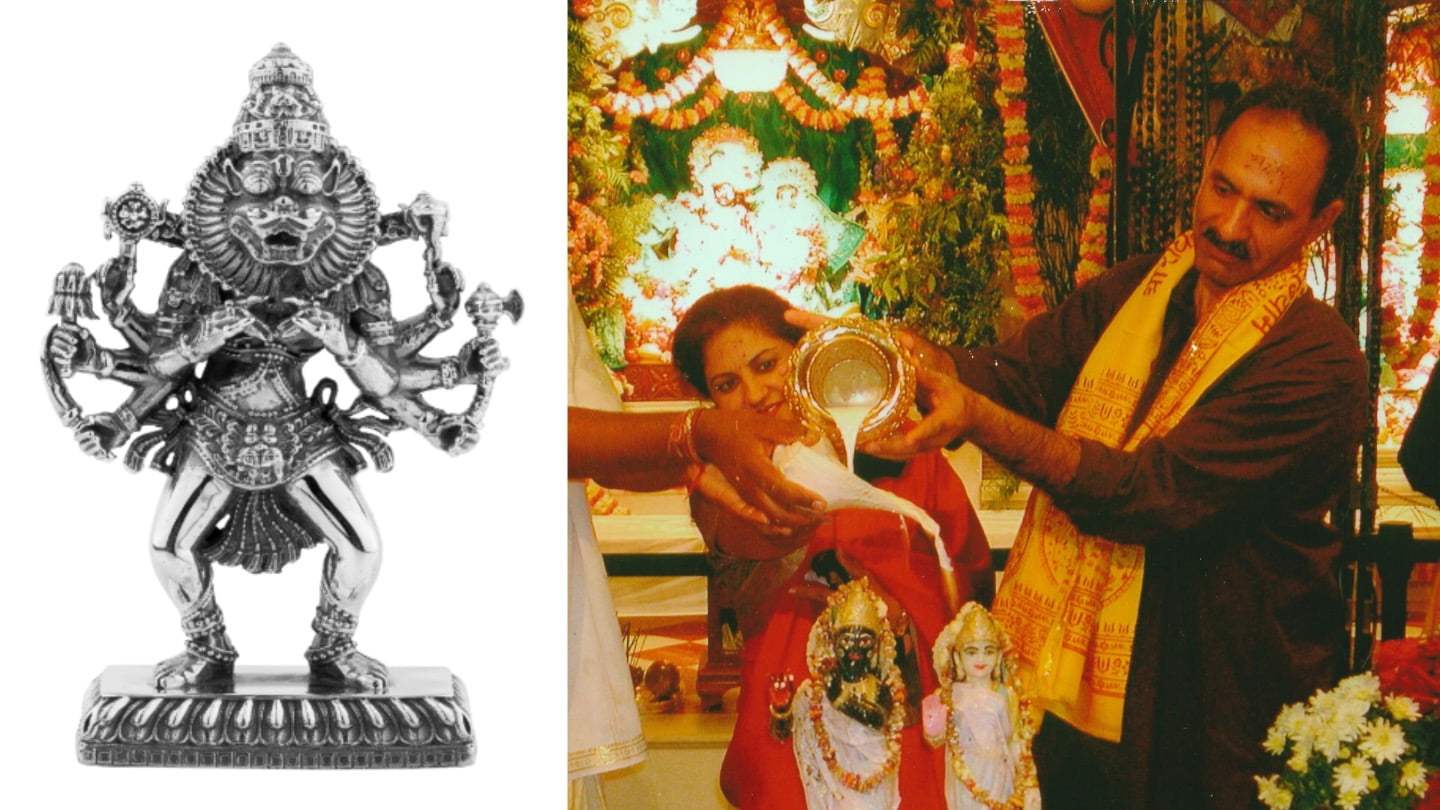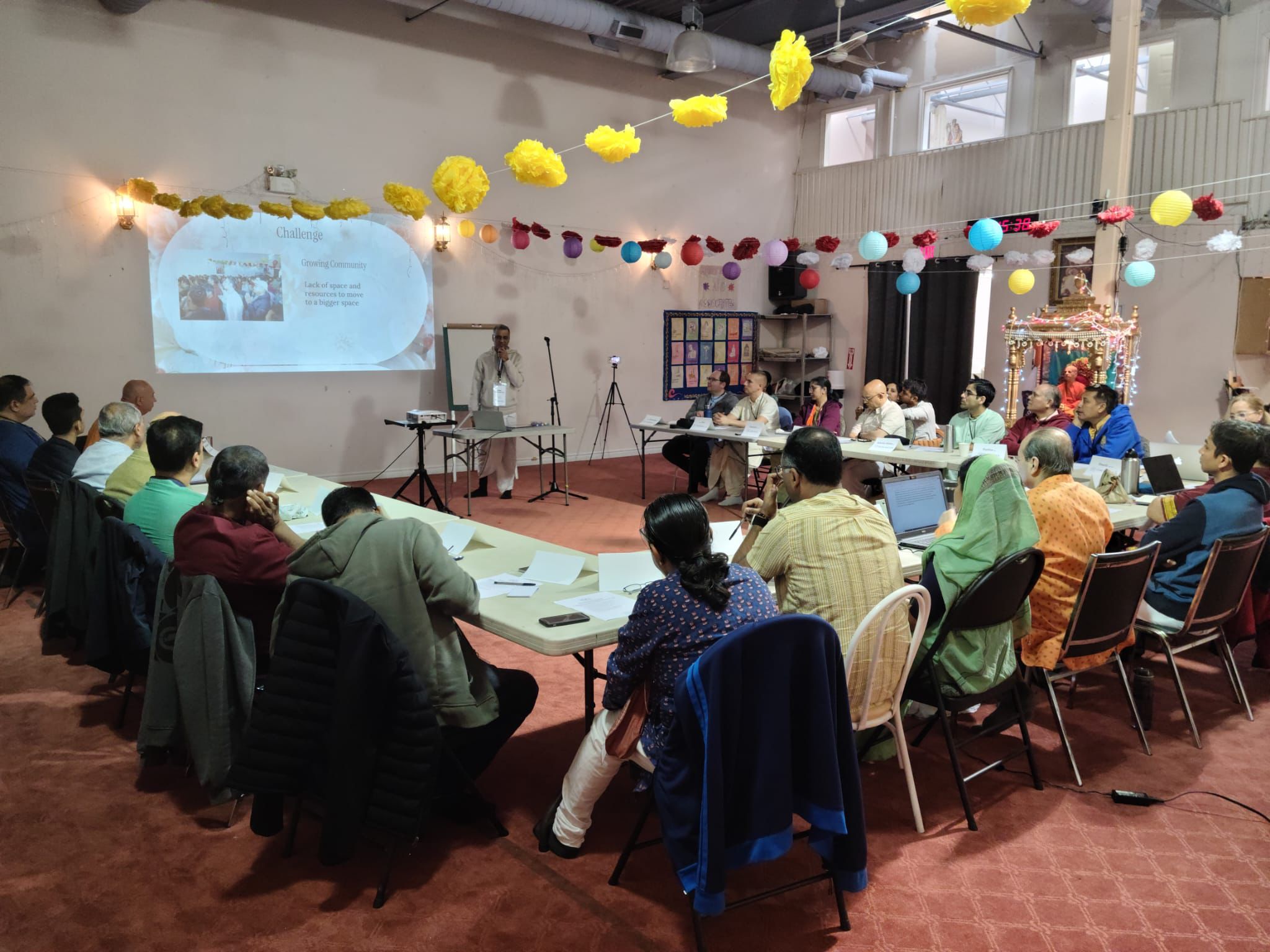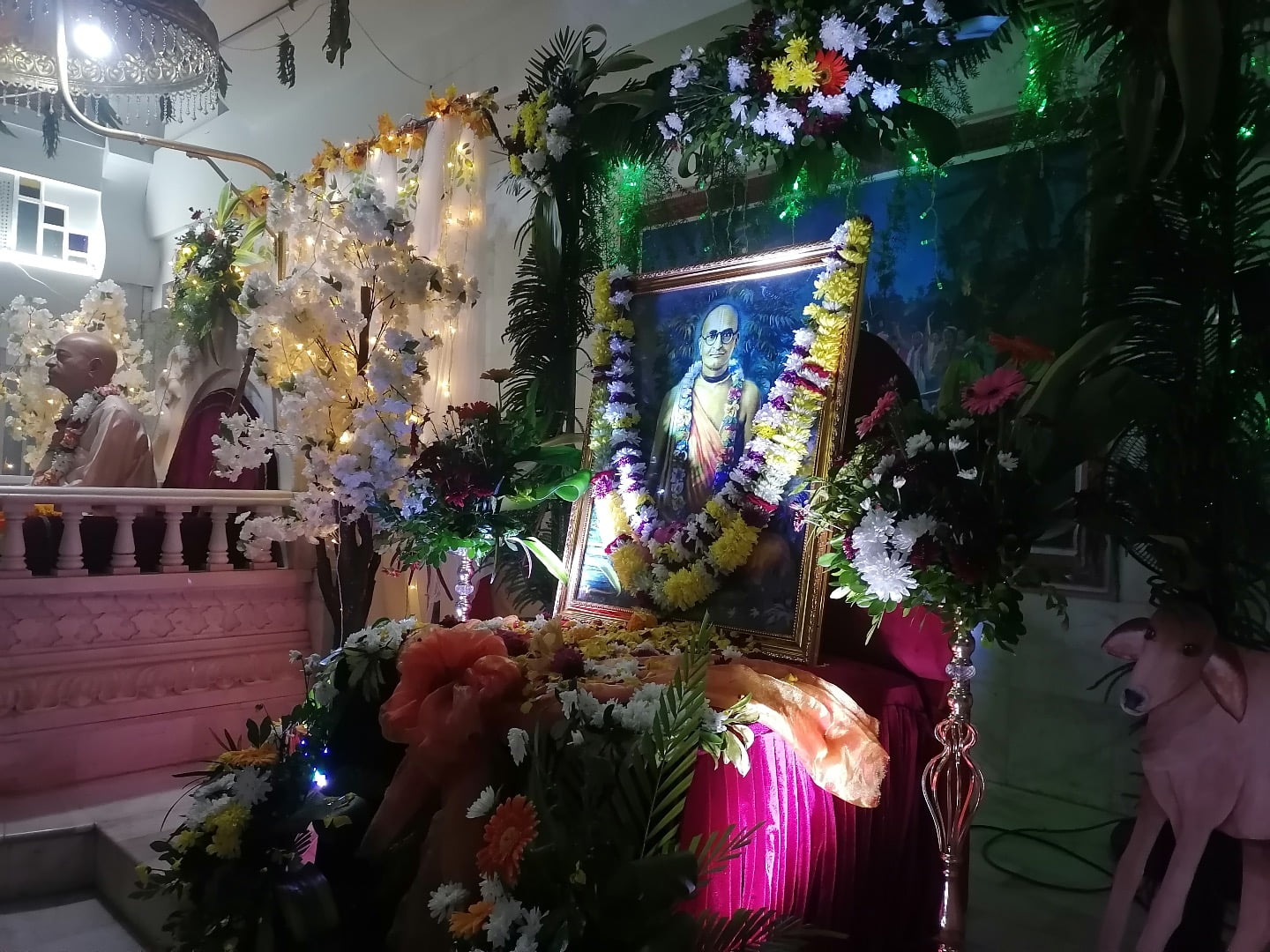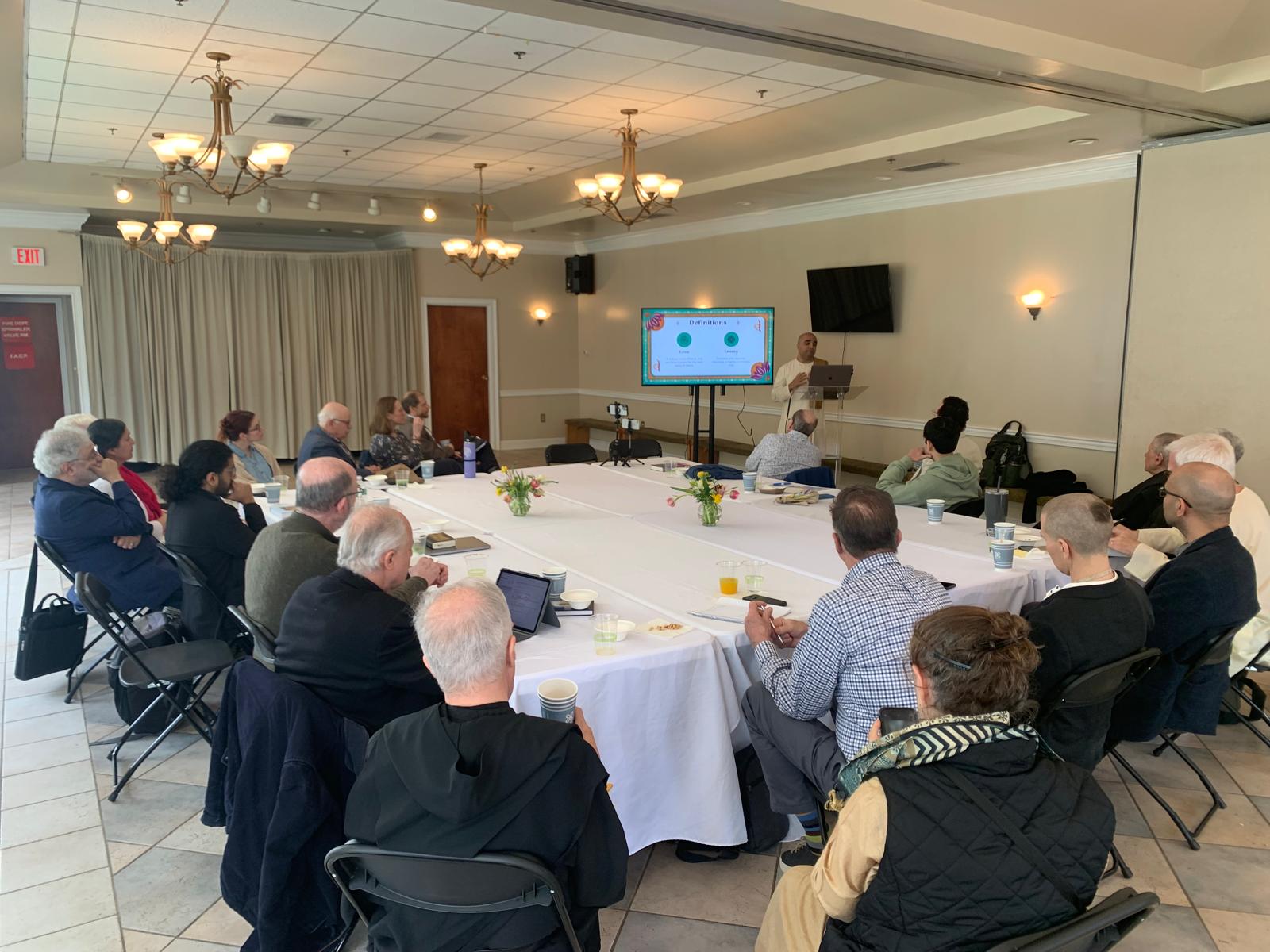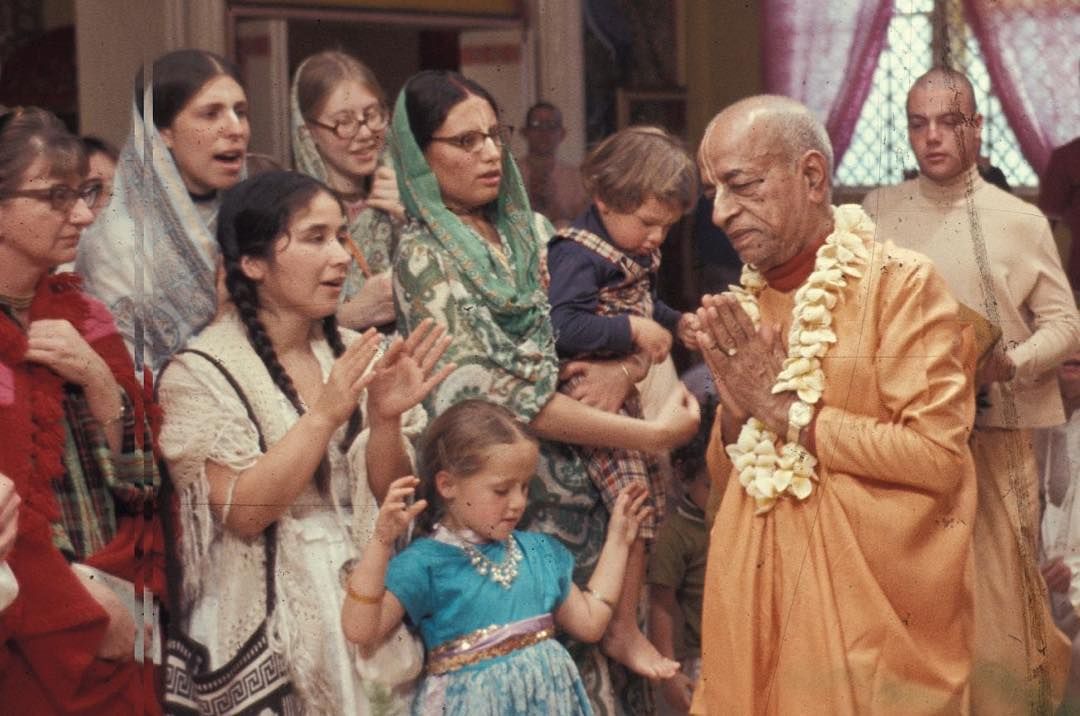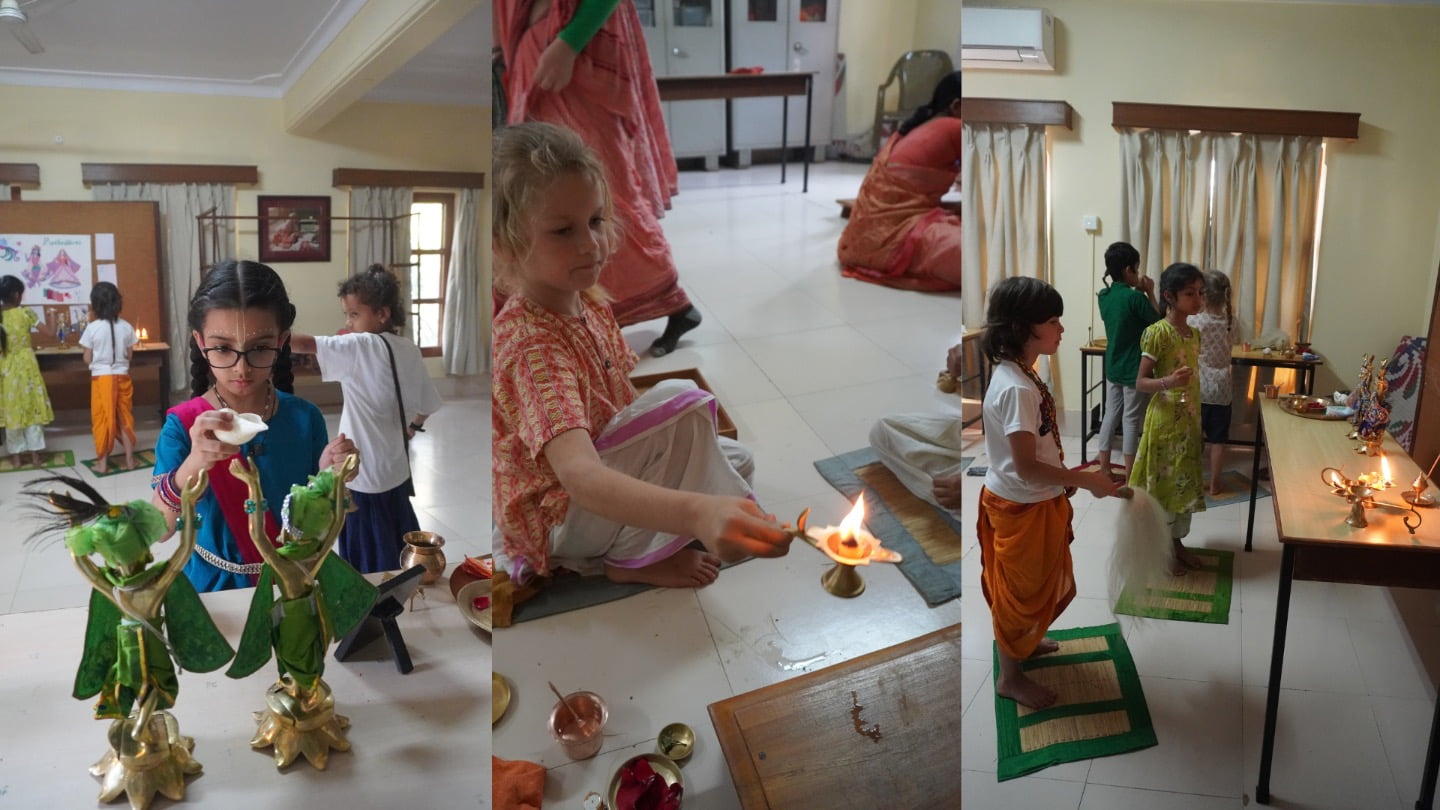Are ISKCON Devotees Hindus?
By Anuttama Dasa and Madhava Smullen | Jun 09, 2012
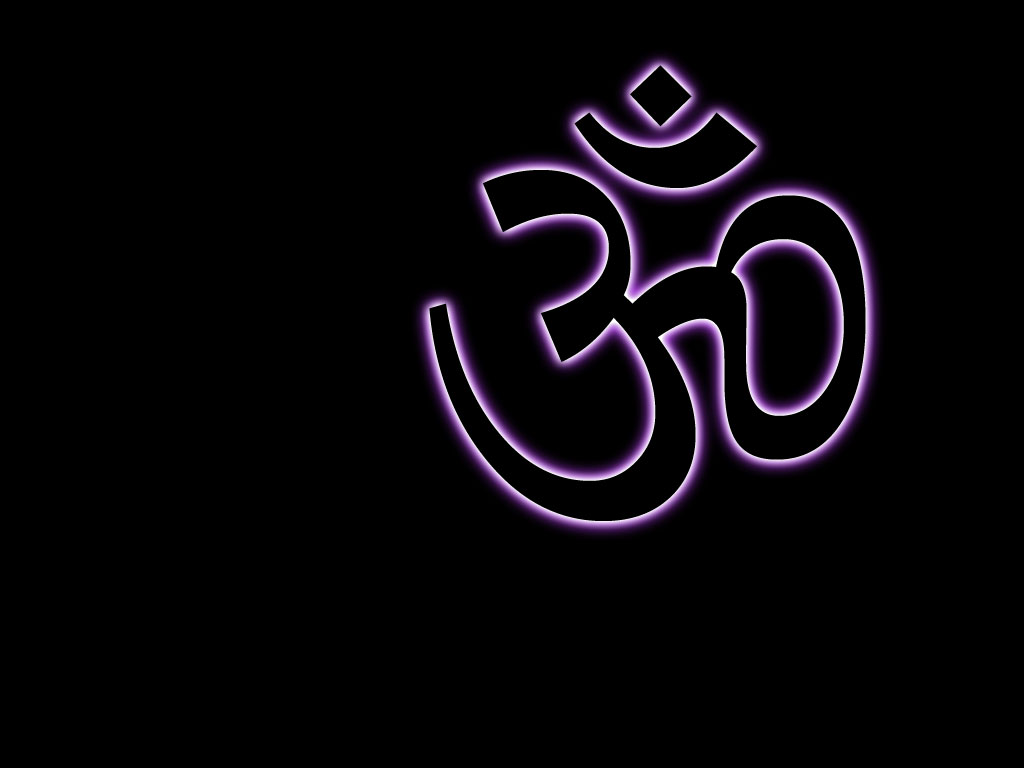
In a May 11th article covering this April’s ISKCON Communications Seminar in Radhadesh, Belgium, we reported on one session regarding ISKCON’s identity in relationship to Hinduism and Hindu culture. The following article is a response to the requests we received from readers for more information and clarification on the topic.
The question of ISKCON’s identity in relationship to Hinduism has often drawn complex and contradictory responses. For instance, those of South Asian origin often begin their relationship with ISKCON based on their understanding that it represents the same Hindu religion they followed at home. Other members of ISKCON advocate that the Society has little or nothing to do with Hinduism.
This has raised a debate within some circles in ISKCON. Temples that have large Hindu congregations and identify themselves with their local Hindu communities—such as England’s Bhaktivedanta Manor—have come under fire from ISKCON members who feel strongly that we are not Hindus and should not be identified as such. To support their stance, they often quote ISKCON founder Srila Prabhupada out of context, saying “we are not Hindus.”
However, the truth is that Srila Prabhupada himself had a layered view on the subject, responding to the “Hindu” moniker in the same way that he did everything else—nuanced according to time, place, and circumstance.
Gauri Dasa, who is an advisor for the development of Bhaktivedanta Manor, and is responsible for ISKCON’s Hindu Relations in the UK, discussed this in his presentation entitled “Am I A Hindu?” at the ISKCON Communications Seminar on April 23rd.
“I began my presentation with two quotes,” he says. “One was ‘There is a misconception that the Krishna consciousness movement represents the Hindu religion.’ The other was, ‘We are spreading Hindu culture throughout the whole world.’”
Both these seemingly contradictory quotes were spoken by Srila Prabhupada. How, then, do we reconcile the two? The answer: by using our discerning intelligence to understand the context of Srila Prabhupada’s statements. In certain contexts it is appropriate for ISKCON members to refer to ourselves as Hindus; at other times it may be better to reject the term.
Srila Prabhupada provides the guide for this. Looking more closely, we find there were at least five different circumstances in which he rejected a Hindu identity.
“In referring to the absolute unchangeable nature of God, the soul and the process of devotional service, he stated innumerable times that we are not Hindu,” Gauri says. “As a Hindu may convert to become a Muslim or Christian, it is an identity subject to change. Our spirituality being absolute and unchangeable, it cannot be referred to by any such worldly term as Hindu, Christian or Muslim.”
Thus in a lecture given on July 1st, 1972 in San Diego, Srila Prabhupada commented, “So Krishna is for everyone. Don’t think that Krishna, as it is stated in your English dictionary, ‘Krishna is a Hindu God.’ He’s not Hindu, He’s not Muslim, He’s not Christian. He’s God.”
Secondly, Prabhupada disagreed with using the term Hindu to describe ISKCON members when it pertains to those of “Hindustani” or Indian origin.
“Our membership is made up of people from all walks of life, some of whom are Hindu in the ethnic or ancestral sense,” Gauri explains. “When surrounded by his early western followers Prabhupada joked that he was ‘the only Hindu in ISKCON’.”
Thirdly, Prabhupada did not want to use the term Hindu when it would be likely to limit interest and participation in Krishna consciousness. Prabhupada was adamant that God’s message is universal and the devotional process scientific. “When you say we are not Hindu, that [means] we are not restricted with the Hindi community,” he said in a 1976 conversation with Gopal Krishna Goswami.
Prabhupada also did not like the terms “Hindu” or “Hinduism” because of their historical inaccuracy and their source outside the Vedic tradition. The word Hindu does not appear even once in either the Bhagavad-gita—the central text for devotees of Krishna—or in any of India’s other ancient Vedic wisdom texts. Rather, it is derived from the Sindhu River (today called the Indus), which originates in the Tibetan Himalayas and flows through present-day Jammu, Kashmir, and Pakistan to the Arabian Sea.

Gauri and other Hindu leaders meeting with members of the British admiralty
As Srila Prabhupada explains, people from Afghanistan, Baluchistan, and Persia mispronounced Sindhu, calling the river “the Hindu” and the people living in and beyond its valley “Hindus.” These included many different religious traditions that are today known as dharmic faiths, including the Vaishnava, Saivite, and Shakta communities. Over the centuries, as Greek, Hun, Tartar, and Mogul armies marched across the Indus to conquer the subcontinent to the south, they brought the name Hindu with them. Eventually, it stuck.
Later, European merchants and colonists also referred collectively to the followers of the religions of India as Hindus.
Thus, the word “Hindu” was introduced by India’s invaders and perpetrated by foreign scholars at the tail end of the country’s history, and is not a self-designating term. Even Hindus today—particularly the older generation of South Asian immigrants—will often argue that Hindu is not an appropriate term, and prefer instead to use “Sanatan Dharma,” meaning the eternal religion of the soul.
The fifth circumstance wherein Srila Prabhupada rejected the word Hindu was when it was used to imply a singular religion or tradition madeup of a variety of beliefs, practices, and multiple gods, often concluding in impersonalism.
“Nowadays, you hear some people saying that Hinduism is pluralism, that Hindus believe in anything and everything,” Gauri explains. “That’s not us. We are a Chaitanyaite Vaishnava faith tradition, whose beliefs are monotheistic and founded in authorized scripture. We have our own traditions that are not subject to compromise.”
However, there were also circumstances wherein Srila Prabhupada did use the word Hindu in reference to ISKCON devotees.
According to Prabhupada, when the term is used in a general sense referring to those who follow the Vedas and the Varnashrama system—the cultured society of India that emphasizes four natural career aptitudes and four spiritual stages—we are Hindus. “So the Vedic culture means to execute the varnashrama-dharma. Now we are known as Hindus,” Prabhupada said in a 1977 lecture in Bhubaneshwara, acknowledging that the word Hindu is used nowadays to refer to the ancient Vedic culture.
When scholars and Governments use the term Hindu in referring to the historic faith traditions originating in India, it is also appropriate to label ISKCON and its members as Hindu. Citing the four different personalist schools of philosophy, the Ramanuja-sampradaya, Madhvacharya-sampradaya, Nimbarka-sampradaya, and Vishnu Swami-sampradaya, Prabhupada says: “Their conclusion is the same. So all these four different sections of the Hindus, they accept Sri Krishna as the Supreme Personality of Godhead.”
In that sense, when demonstrating the authenticity of ISKCON and the Gaudiya, or Chaitanya Vaishnava tradition, it is appropriate to accept the more commonly known term “Hindu”. For example, as Prabhupada’s movement grew and began to be criticized as a “new cult” in various parts of the world, he acknowledged that we are part of the broader Hindu culture.
When “deprogrammers tried to stop youth joining ISKCON in the 1970s because they thought it was “brainwashing” them, Srila Prabhupada said in a 1976 conversation in Mumbai, “So because America has got freedom of religion, so if they accept my movement as Hindu religion, they cannot do anything [against it].” In other words, if people understand ISKCON as an authentic tradition, part of the broader Hindu culture, they will be more likely to accept it, and not falsely deride or attack its members.
When an attempt was made to stop London’s Rathayatra in 1974, he told disciples, “A protest meeting should be done in such a way that the whole world may know that the British Government stopped the yearly Ratha-yatra ceremony of the Hindus.”
And in response to an issue of Bhavan’s Journal that questioned whether ISKCON devotees should be allowed to enter Hindu temples, Srila Prabhupada wrote, “The Hindu Vishva Parishad approves us as rigid Hindus as it will be clear from the letter of Swami Cinmayananda.”
In more recent times, ISKCON, presenting itself as part of the Hindu community, the world’s third biggest religion with 1 billion members, has successfully defended its devotees from persecution in Moscow, Kazakhstan, and Hungary. In the UK, devotees, representing the Hindu community, won a decade-long battle against the local government when it tried to close Bhaktivedanta Manor to public worship. At the Manor, ISKCON devotees, representing Hindus of Britain, have met the Queen and the Prime Minister, and have visited the House of Parliament.
All this is in no way a dishonest or opportunist representation of ourselves. ISKCON’s official statement, http://content.iskcon.org/icj/7_1/71srd.html “ISKCON in Relationship to People of Faith and God”, sums up the matter: “ISKCON belongs to the Gaudiya Vaishnava sampradaya, a monotheistic tradition within Vedic or Hindu culture. Hindu culture is vast, and the term encompasses numerous theologies, philosophies, religious traditions and spiritual cultures. Thus, dialogue with Hindu traditions has been difficult for many seeking such dialogue. There is no one official representative of Hinduism, as the term Hinduism does not imply a single spiritual tradition. This statement therefore is representative of Hindu culture and religion as ISKCON, as a Vedantic, monotheistic Vaishnava tradition.”
From Srila Prabhupada’s statements, and the points we have discussed in this article, several things are clear. First, that ISKCON simultaneously has its own, unique identity, and is part of the broader Hindu culture. Secondly, that from the spiritual perspective, we are not Hindus—and neither are we Jewish, Christian, Muslim, Buddhist. We are servants of God, and this eternal nature of the soul transcends any sectarian identity.
However, from a cultural, academic, official, and legal point of view ISKCON is part of the broader Hindu community. For the sake of social discourse and practicality in this world, all people are identified under different traditions—whether they’re geographical, political, religious, ethnic, or linguistic. In this regard, ISKCON clearly falls under the broad umbrella of the Vedic—or what is known today as Hindu—traditions.
It seems to follow that rather than blustering “We are not Hindus!,” or naively agreeing that we are Hindu whatever the context, we should take Srila Prabhupada’s example of responding thoughtfully according to time, place and circumstance. It would be useful to every ISKCON devotee to understand the different ways in which our founder accepted or rejected the term Hindu. Then, when appropriate, we can emphasize our Hindu connections, and when appropriate, articulate the difference between Krishna consciousness and a particular facet of Hinduism.
Thus, ISKCON is an organization with historic roots in the Hindu culture, one of the world’s great spiritual communities, while simultaneously maintaining our own unique identity as Gaudiya Vaishnavas, and followers of our Founder-Acharya, Srila Prabhupada. In this way our society remains attractive and accessible to both indigenous Hindus and people of other backgrounds; all, we hope, finding something of value in our teachings to contribute to the quality of their lives and their spiritual pursuits.





